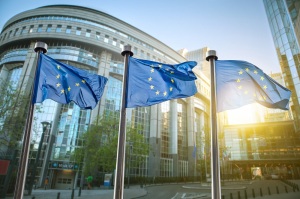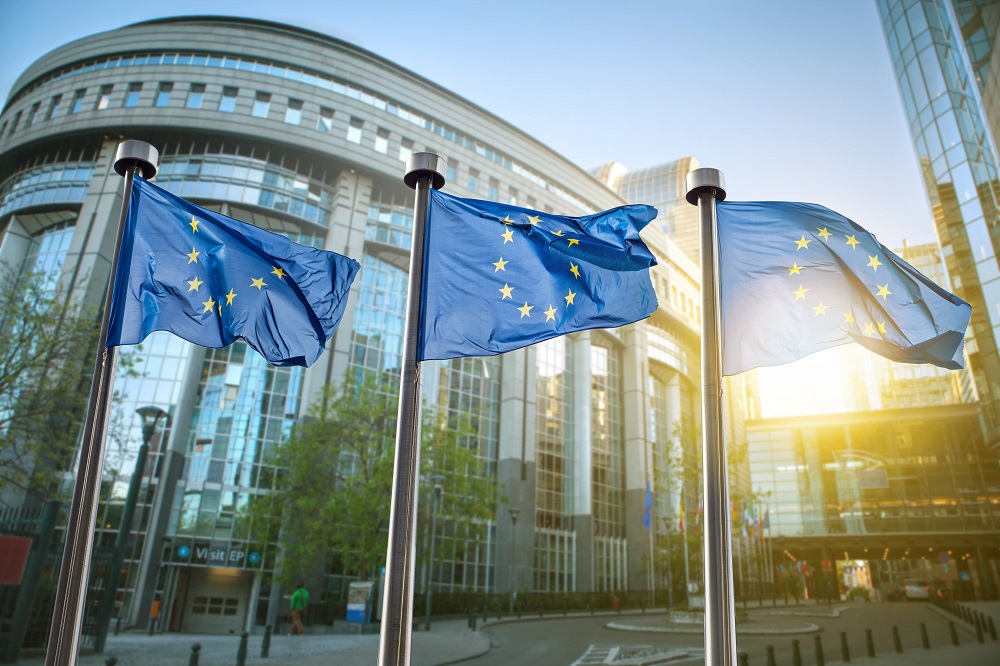Written by Clare Ferguson,

CORRECTION: Due to the coronavirus outbreak, the plenary session is limited to two days, with a revised agenda. Members will hear Council and Commission statements on the migration situation at the Greek-Turkish border, and the EU response, where weaknesses in the Dublin system of international protection applications are likely once again to come to the fore. While proposals on EU budget financing for activities related to migration and border management are already on the table for the 2021-2027 multiannual financial framework (MFF), these are yet to be agreed. In a joint debate on Wednesday morning, Members will also hear statements on the conclusions of the special European Council meeting on the next MFF, and on preparations for the European Council meeting scheduled for 26 and 27 March. EP President Sassoli will also make a statement to mark International Women’s Day 2020.
In view of the novel coronavirus outbreak, the European Parliament is implementing a range of precautionary measures. However, the Parliament has a duty to maintain its legislative work, and therefore the plenary session is still planned to take place (although the session will now be held in Brussels), with a number of pressing issues on the agenda. The Council and European Commission are expected to make statements on the novel coronavirus on Tuesday morning. Members are likely to support a coordinated European Union (EU) response to minimising the health and economic impact of the epidemic, with a vote on a motion for resolution scheduled for Thursday lunchtime.
International Women’s Day takes place on 8 March, and Members will hear statements from the Council and Commission on women as key agents for change on Tuesday morning. Indeed, young women (such as Greta Thunberg, who addressed Parliament’s Environment Committee on 4 March 2020), are increasingly making their mark on the world stage. However, gender inequalities persist despite the opportunities offered by the digital revolution, and Members will take stock of women’s rights in the digital age in a topical debate on Wednesday afternoon.
On Wednesday morning, Members will hear Council and Commission statements on the migration situation at the Greek-Turkish border and the EU response, where weaknesses in the Dublin system of international protection applications are likely once again to come to the fore. While proposals on EU budget financing for activities related to migration and border management are already on the table for the 2021-2027 multiannual financial framework (MFF), these are yet to be agreed. In a joint debate on Wednesday morning, Members will also hear statements on the conclusions of the special European Council meeting on the next MFF, and on preparations for the European Council meeting scheduled for 26 and 27 March.
Members will hear a number of statements from the Vice-President of the Commission/High Representative of the Union for Foreign Affairs and Security Policy (VP/HR) on Tuesday afternoon. The first concerns a key EU strategic partner in the neighbourhood, Georgia, where elections are due in October 2020. The current government is under considerable criticism for its failure to progress on democratic reform. However, Parliament hopes its support of the country’s membership of the Eastern Partnership will encourage the government to implement the reforms called for under its Association Agreement with the EU. Members will vote on a motion for resolution on Thursday. The VP/HR will also make a statement marking five years of implementation of the Minsk agreements, which were intended to provide a roadmap to move from war to peace in Ukraine. Following Russian incursion, fighting in Ukraine led to EU sanctions on Russia in 2014. As the Minsk agreements have had limited success, fighting continues and the sanctions remain in place. Parliament has repeatedly underlined the Kremlin’s responsibility for the implementation of the Minsk accords. On Thursday, Members will vote on a motion for resolution on the five years of implementation.
Small businesses are the backbone of the EU economy, and a joint debate on Tuesday afternoon will focus on the EU strategies on small and medium-sized businesses and European industry, where Parliament has been keen to support Commission efforts to reduce red tape and administrative burden. Such businesses are also one focus of the Committee on Employment and Social Affairs (EMPL) report on the employment aspects of the 2020 Annual Growth Survey, which Members will discuss on Wednesday afternoon. The report is a step in the European Semester process, which allows EU countries to coordinate on economic reform and budget plans. The committee welcomes the Commission’s focus on attaining the Sustainable Development Goals, and makes several proposals to boost measures to tackle poverty, gender equality and access to health, all aimed at ensuring a just transition in a fair society.
Parliament plays a vital role in scrutinising such EU policy. Parliament’s committees therefore review several major policy areas and prepare an annual report. On Monday evening, Members will consider two Committee on Economic and Monetary Affairs (ECON) reports, where the committee calls for greater Parliamentary involvement in the process. The first report, on the state of play on banking union in 2019, acknowledges the need for a solid banking union to underpin the economy and to encourage competitiveness and convergence. However, the committee calls for greater advances in risk sharing, particularly in face of the threats associated with climate change or digital weaknesses and more specifically, the challenge posed by the United Kingdom’s withdrawal from the EU. The second report deals with a review of EU competition policy in 2019. In view of the increased importance of global markets, the EU needs robust policy with international reach. The committee underlines the need, among other measures, to boost European market leaders and reinforce international standards, particularly in the digital field. While supporting the use of State aid for the European Green Deal, the committee also proposes introducing measures to fine countries that distort competition through State aid.
Finally, during voting on Wednesday, the Fisheries Committee recommends that Parliament consent to the conclusion of a new Protocol on the implementation of the EU–São Tomé and Príncipe fisheries agreement. Under the agreement, in exchange for €840 000 in EU assistance (more than half of which is earmarked to promote sustainable fisheries), São Tomé and Príncipe grants access for EU vessels to tuna stocks in the region.








Just a heads up: The link to the “contingency plan of the EU MFF” does not lead to a website but rather indicates your server shortcut used for the reference document, including the name of the author and the file in which it is saved.
Oops this refers to Plenary Round up of May 2020